Filter by
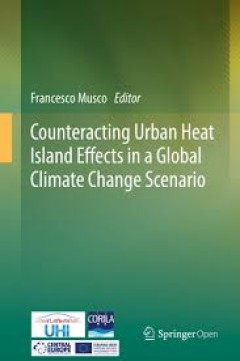
Counteracting urban heat island effects in a global climate change scenario
Urban heat islands are a new type of microclimatic phenomenon that causes a significant increase in the temperature of cities compared to surrounding areas. The phenomenon has been enforced by the current trend towards climate change. Although experts consider urban heat islands an urgent European Union public health concern, there are too few policies that address it. The EU carried out a proj…
- Edition
- -
- ISBN/ISSN
- 9783319104256
- Collation
- liii, 400p.
- Series Title
- -
- Call Number
- 363.7 MUS c

Biological invasions in South Africa
This open access volume presents a comprehensive account of all aspects of biological invasions in South Africa, where research has been conducted over more than three decades, and where bold initiatives have been implemented in attempts to control invasions and to reduce their ecological, economic and social effects. It covers a broad range of themes, including history, policy development and …
- Edition
- -
- ISBN/ISSN
- 9783030323943
- Collation
- xxiv, 975p. : ill.
- Series Title
- -
- Call Number
- 577.18 BIO b
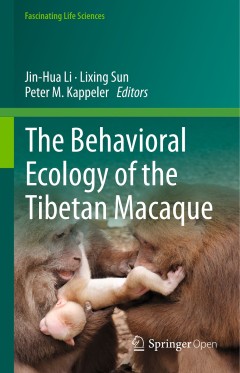
The behavioral ecology of the Tibetan macaque
This open access book summarizes the multi-disciplinary results of one of China’s main primatological research projects on the endemic Tibetan macaque (Macaca thibetana), which had continued for over 30 years, but which had never been reported on systematically. Dedicated to this exceptional Old World monkey, this book makes the work of Chinese primatologists on the social behavior, cooperati…
- Edition
- -
- ISBN/ISSN
- 9783030279202
- Collation
- xvi, 299p. : ill.
- Series Title
- -
- Call Number
- 599.82 BEH b
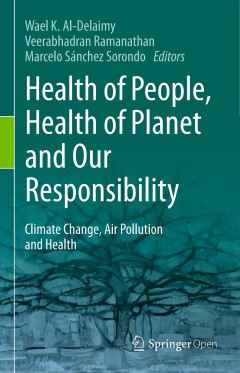
Health of people, health of planet and our responsibility : climate change, a…
This open access book not only describes the challenges of climate disruption, but also presents solutions. The challenges described include air pollution, climate change, extreme weather, and related health impacts that range from heat stress, vector-borne diseases, food and water insecurity and chronic diseases to malnutrition and mental well-being. The influence of humans on climate chang…
- Edition
- -
- ISBN/ISSN
- 9783030311254
- Collation
- xxiii, 417p. : ill.
- Series Title
- -
- Call Number
- 363.73874 HEA h
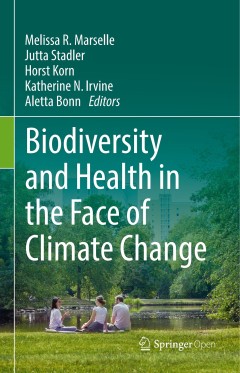
Biodiversity and health in the face of climate change
This open access book identifies and discusses biodiversity’s contribution to physical, mental and spiritual health and wellbeing. Furthermore, the book identifies the implications of this relationship for nature conservation, public health, landscape architecture and urban planning – and considers the opportunities of nature-based solutions for climate change adaptation. This transdisci…
- Edition
- -
- ISBN/ISSN
- 9783030023188
- Collation
- xxvi, 481p. : ill.
- Series Title
- -
- Call Number
- 613.1 BIO b
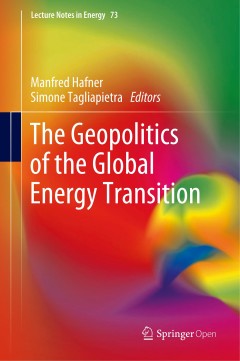
The geopolitics of the global energy transition
The world is currently undergoing an historic energy transition, driven by increasingly stringent decarbonisation policies and rapid advances in low-carbon technologies. The large-scale shift to low-carbon energy is disrupting the global energy system, impacting whole economies, and changing the political dynamics within and between countries. This open access book, written by leading energy…
- Edition
- -
- ISBN/ISSN
- 9783030390662
- Collation
- xxv, 381p. : ill.
- Series Title
- -
- Call Number
- 327 GEO g
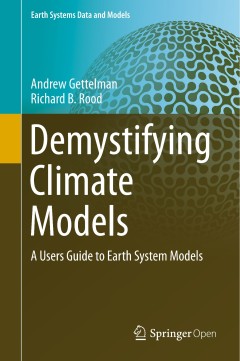
Demystifying climate models : a users guide to earth system models
This book demystifies the models we use to simulate present and future climates, allowing readers to better understand how to use climate model results. In order to predict the future trajectory of the Earth’s climate, climate-system simulation models are necessary. When and how do we trust climate model predictions? The book offers a framework for answering this question. It provides readers…
- Edition
- -
- ISBN/ISSN
- 9783662489598
- Collation
- xvii, 274p. : ill.
- Series Title
- -
- Call Number
- 551.6015118 GET d
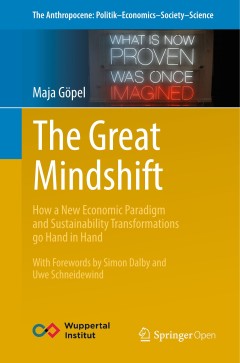
The great mindshift : how a new economic paradigm and sustainability transfor…
Sustainable development is the 21st Century’s wicked problem. After 40 years into this agenda have reversed only few unsustainable trends we hear the call for a paradigm shift, transformation, radical change or system innovations in order to finally change course. But what does this actually mean? And how do we put it into practice? This book describes the path ahead. It combines system tr…
- Edition
- -
- ISBN/ISSN
- 9783319437668
- Collation
- xxiii, 184p. : ill.
- Series Title
- -
- Call Number
- 338.927 GOP g
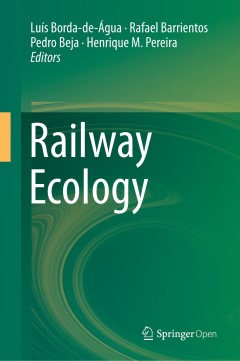
Railway ecology
This book provides a unique overview of the impacts of railways on biodiversity, integrating the existing knowledge on the ecological effects of railways on wildlife, identifying major knowledge gaps and research directions and presenting the emerging field of railway ecology. The book is divided into two major parts: Part one offers a general review of the major conceptual and theoretical p…
- Edition
- -
- ISBN/ISSN
- 9783319574967
- Collation
- xxx, 320p. : ill.
- Series Title
- -
- Call Number
- 577 RAI r
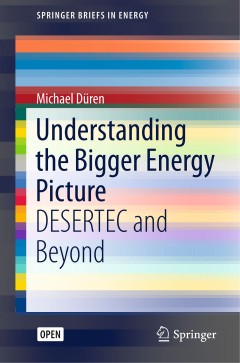
Understanding the bigger energy picture : DESERTEC and beyond
This book focuses on the global cycles of energy, water and carbon, which are not only the essentials of our main energy carriers, the fossil fuels, but are also the building blocks of life. The book offers an overview of the basic scientific facts and relationships that are needed to understand today’s energy generation and use, how they relate to global climate, the water cycle and other re…
- Edition
- -
- ISBN/ISSN
- 9783319579665
- Collation
- xv, 110p. : ill.
- Series Title
- -
- Call Number
- 333.79 DUR u
 Computer Science, Information & General Works
Computer Science, Information & General Works  Philosophy & Psychology
Philosophy & Psychology  Religion
Religion  Social Sciences
Social Sciences  Language
Language  Pure Science
Pure Science  Applied Sciences
Applied Sciences  Art & Recreation
Art & Recreation  Literature
Literature  History & Geography
History & Geography